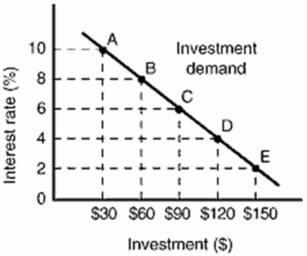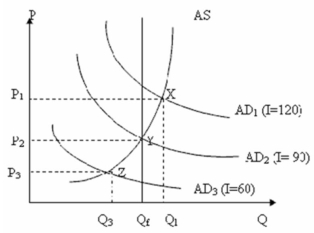

-Refer to the above graphs,in which the numbers in parentheses after the AD1,AD2,and AD3 labels indicate the level of investment spending associated with each curve,respectively.All numbers are in billions of dollars.The interest rate and the level of investment spending in the economy are at point C on the investment demand curve.To achieve the goal of a non-inflationary full-employment output Qf in the economy,the monetary authorities should:
A) increase aggregate demand by increasing the interest rate.
B) decrease aggregate demand by increasing the interest rate.
C) increase aggregate demand by decreasing the interest rate.
D) make no change in the interest rate.
Correct Answer:
Verified
Q147: Q148: Q163: According to the Taylor Rule: Q165: In implementing monetary policy with respect to Q166: Which of the following best describes the Q169: If the amount of money demanded exceeds Q173: Which of the following statements is not Q191: A decline in the equilibrium level of Q193: Which of the following is an expansionary Q199: Which of the following best describes what![]()
![]()
A)for each 1
Unlock this Answer For Free Now!
View this answer and more for free by performing one of the following actions

Scan the QR code to install the App and get 2 free unlocks

Unlock quizzes for free by uploading documents